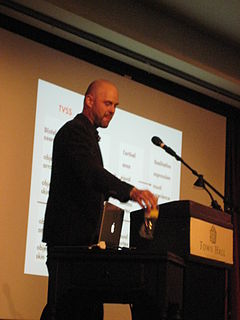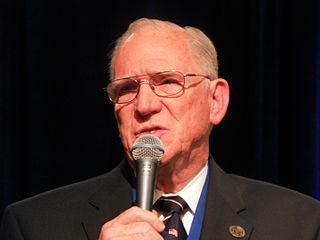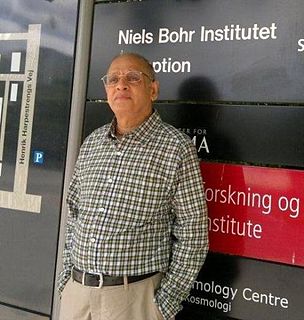A Quote by Akiane Kramarik
When we cannot look around and explain anything we are the quantum world.
Related Quotes
If you let other people do some of the work that we ask ourselves to do, if you allow for the fact that we are ourselves dependent on and distributed over and in a way made up out of the world and processes around us then we can explain certain questions that we otherwise cannot explain and moreover we discover that we are not aliens in a strange world.
Wonder knows that while you cannot look at the light, you cannot look at anything else without it. It is not exhausted by childhood, but finds its key there. It is a journey like a walk through the woods over the usual obstacles and around the common distractions while the voice of direction leads, saying, 'This is the way, walk ye in it.'
Bohm's interpretation of quantum physics indicated that at the subquantum level, the level in which the quantum potential operated, location ceased to exist. All points in space became equal to all other points in space, and it was meaningless to speak of anything as being separate from anything else. Physicists call this property 'nonlocality.'
Scientific realism in classical (i.e. pre-quantum) physics has remained compatible with the naive realism of everyday thinking on the whole; whereas it has proven impossible to find any consistent way to visualize the world underlying quantum theory in terms of our pictures in the everyday world. The general conclusion is that in quantum theory naive realism, although necessary at the level of observations, fails at the microscopic level.
The incomplete knowledge of a system must be an essential part of every formulation in quantum theory. Quantum theoretical laws must be of a statistical kind. To give an example: we know that the radium atom emits alpha-radiation. Quantum theory can give us an indication of the probability that the alpha-particle will leave the nucleus in unit time, but it cannot predict at what precise point in time the emission will occur, for this is uncertain in principle.
We couldn't build quantum computers unless the universe were quantum and computing. We can build such machines because the universe is storing and processing information in the quantum realm. When we build quantum computers, we're hijacking that underlying computation in order to make it do things we want: little and/or/not calculations. We're hacking into the universe.







































